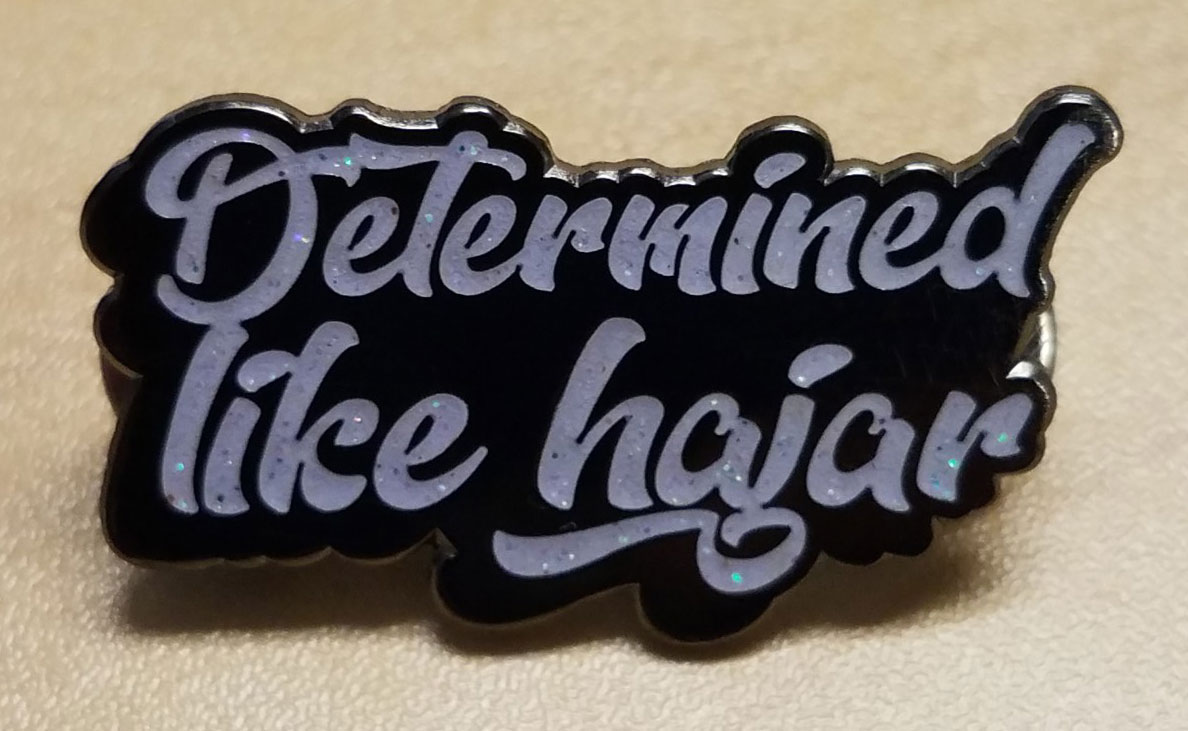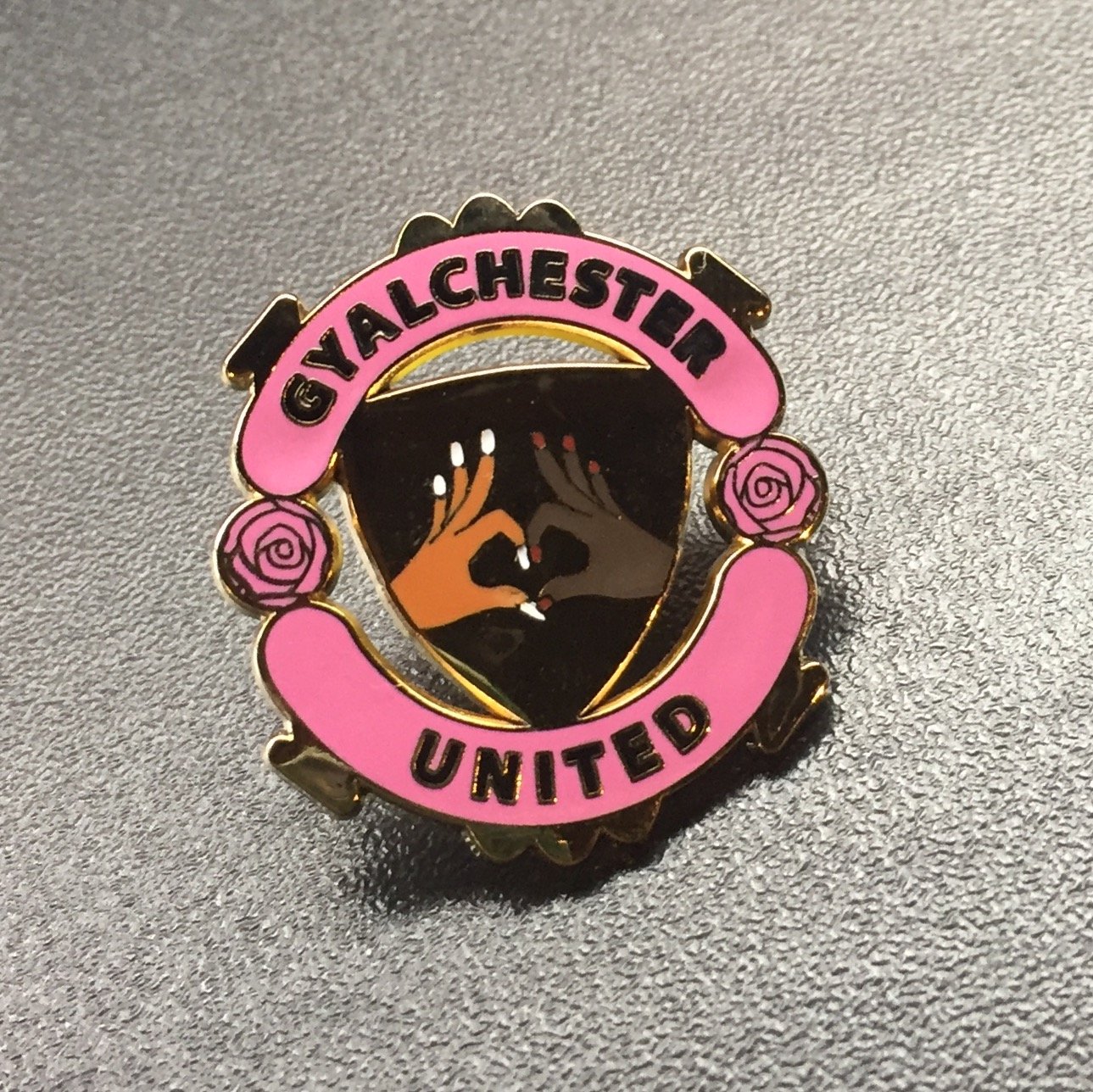“I’m in a Facebook group called Black Pin Maker League — it’s like a secret society.” Kirby Afua is describing a creative online community of illustrators, artists and makers — specifically pin makers — who are at the forefront of a community quietly making waves. She’s reeling off some of her favourites, “it’s just a lot of us from around the world sharing ideas. There’s one I like by Coloring Pins who does a ‘black is the new black’ one and a black Daria one that can represent your politics without having a massive slogan t-shirt saying ‘BLACK LIVES MATTER — a lot of them are in-jokes, or for people who know”.
Back in the mid-00s, if you had something to say, you quite literally said it with your chest, leaving bold slogan t-shirts to make your statements for you loud and proud. While this is still the norm — everyone from Dior to Topshop have produced political slogan t-shirts in the past season — it also comes pinned into a lapel in the form of a pin. Quieter at first glance thanks to their unassuming size, it’s here that people have been making some of their most radical statements.
These radical voices don’t just exist in ‘secret’ online communities. Earlier this year, Emma Stone wore a Planned Parenthood badge pinned to her Givenchy dress at the Oscars, while Lola Kirke wore one declaring ‘Fuck Paul Ryan’ in protest of the GOP proposals.
News responses have filtered into the fashion subculture of pin makers, and earlier this year Scottish pin maker Mhairi Mackenzie made headlines when she responded to the #MeToo campaign that highlighted solidarity with victims of sexual assault (she also made ‘Nasty Gal’ pieces in response to Trump’s statements with proceeds going to women’s charities). “I think pins are having a moment, they’re a really popular fashion accessory,” she says, “I liked the idea that if someone had encountered some kind of abuse of harassment they could know they aren’t alone via silent support and acknowledgement.”

The political element of these pins is clear — making apparent your politics with blink and you’ll miss it details that demand pause from a generation often demonised as being attention deficient. For UK streetwear brand HYPEPEACE, their Palestine pins ape the Palace brand logo for a ground level nod. Yeah Charleston from the US made a pin that featured a confederate flag emblazoned with the word loser to highlight activism around confederate statues coming down this year. Quiet Expression direct people not to touch their hair, while the HBCU pin collective make Issa Rae’s now infamous “I’m rooting for all the black people” Emmy’s quote eternal by melting it into speech bubbles.
Kiah Glenn, of the We Been Here collective, heads up a platform dedicated to ‘the voices of Black, Latina and Muslim women. “There are pins that represent different aspects of being Black or Latinx,” she says, “But I didn’t see any that about being Muslim. So I decided to create pins that I felt represented me and other Muslims.”
“They are physical reminders of faith, which people aren’t always comfortable with. Wearing them says ‘Yes! Either I am or I support Muslims’. And that’s not something that is always welcomed in professional spaces. Many of my non-Muslim friends have the ‘Determined like Hajar’ [a prominent woman in Islam] pin which is amazing.”
London-based stylist Alize Demange says that there has been a move, at least anecdotally, for people wanting to reflect their politics via fashion, but more subtly than we might have seen before. “I remember 2004 nu rave culture when everyone was wearing slogan tees with huge lettering” she says. “Now a lot of our stuff is super branded so to say something without being too in your face is good because there are already loud messages. More conversation mean we’re in the middle of ‘woke’ culture so everyone is trying to show other people exactly what they stand for.”
The pin community is deftly reacting to the throwaway culture of disposable fashion and hastily screen printed Primark t-shirts and takes the craft to more hardy elements. In pop culture, where the internet gives us memes to sum up the moment, the transient nature of the joke, or sentiment, is part of the fun. But for a generation where nostalgia is placed in these collective meme sharing moments, their lives can be elongated through art. A brief look at people elongating the lifespan of an internet meme flags up a salt bae enamel pin, a tea sipping Kermit and, of course, a fair amount of Drake.
Afua, also makes the critically acclaimed Dump Him zine (a nod to the Britney’s 2002 slogan tee), and her pop culture pins are a good example of bringing new life to transient moments. Her Gyalchester United pins nod to Drake’s Gyalchester release this year with an injection of female solidarity, while the Sad and Boujee are a comic response to one the songs of the year. So is elongating the life span of a meme all part of the fun?
“Pins have a quick turnaround, are relatively cheap to make so you can respond to memes” says Afua. “Most of my sales are via Instagram where the community of artists tag me in things and it’s easy to connect. I’ve had sales all around the world so something quite memeable can appeal globally.”
A world where in-jokes, radical statements, craft reclamation and physical collections is an obvious thrill. It’s a community that makes us pause for metal moments an increasingly irreverent world, straddling the pop mainstream and radical underground. For some, a joke pin is not that deep, for others, they can allow you to find your voice. It’s an easy sell really, when people are clambering to be heard, forcing you to loudly — and publicly — pick a side. Saying it with your lapel might just feel like respite.
